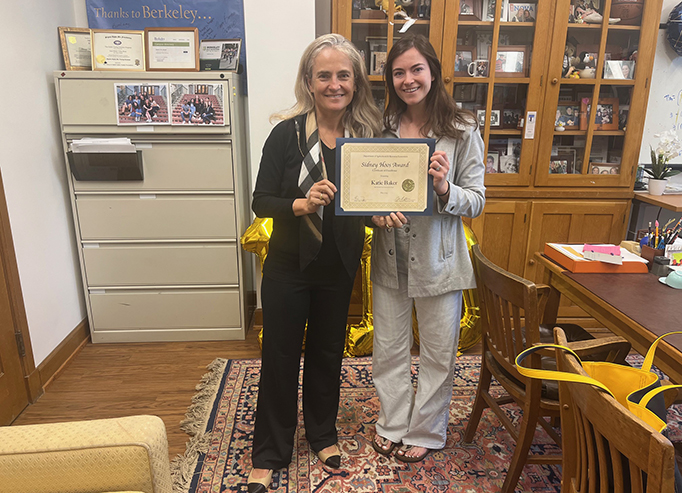In the summer before the second year of ARE's Graduate Program, students begin their second-year econometrics projects, also known as the second year paper. Students select an economic question that is of interest to them, and craft an empirical paper under close faculty supervision. A good empirical paper requires three components: a concise, sensible, and relevant research question or hypothesis to test; reasonably good data; and an experiment, event, or set of circumstances that give the data a chance to answer the question asked. Identifying a good question is a non-trivial exercise that takes time and effort. Over the course of the second year students work with a faculty advisor to meet specific deadlines, and the top second year paper wins the Sidney Hoos prize.
In her second-year paper, Katie Baker first lays out a simple climate adaptation model to derive testable predictions. She then uses scanner data on water purchases, combined with a panel dataset of temperature and extreme temperatures, as well as local characteristics of neighborhoods and domestic well failures to estimate her empirical model. She estimates that the causal effect of temperature on retail bottled water expenditures to be about 1% for every degree of weekly maximum temperature exposure. She also finds that domestic well failures (which curtail groundwater-dependent household tap water supply) are associated with greater bottled water consumption. Interestingly, the temperature response is muted at the highest temperatures in counties with hotter average summers, consistent with long-run adaptation in the region.
Congratulations Katie!
Thanks to Katie's paper advisor ARE Professor Sofia Villas-Boas (pictured with Katie below) and to ARE professor Ethan Ligon who leads the second-year paper process for our students.


